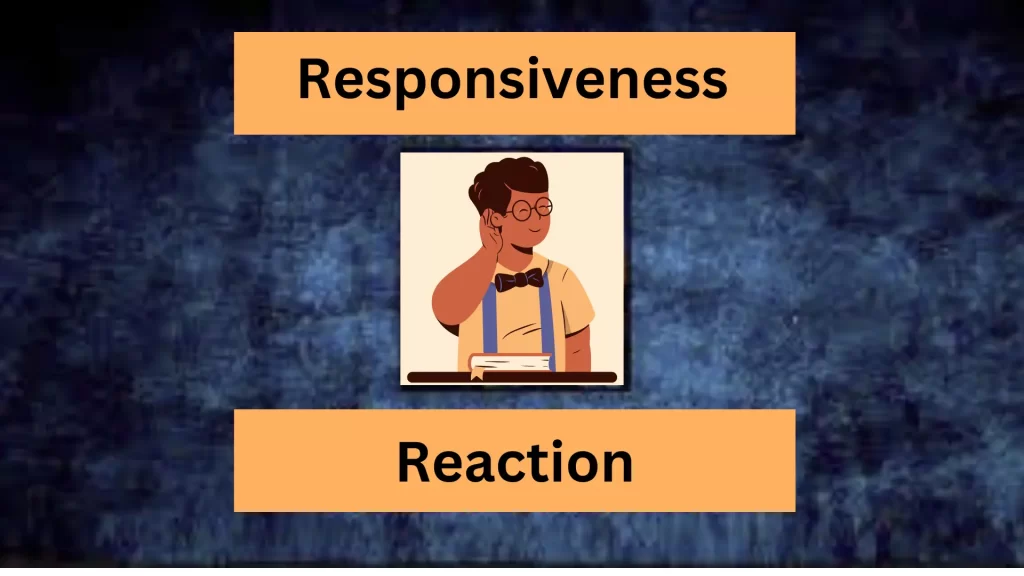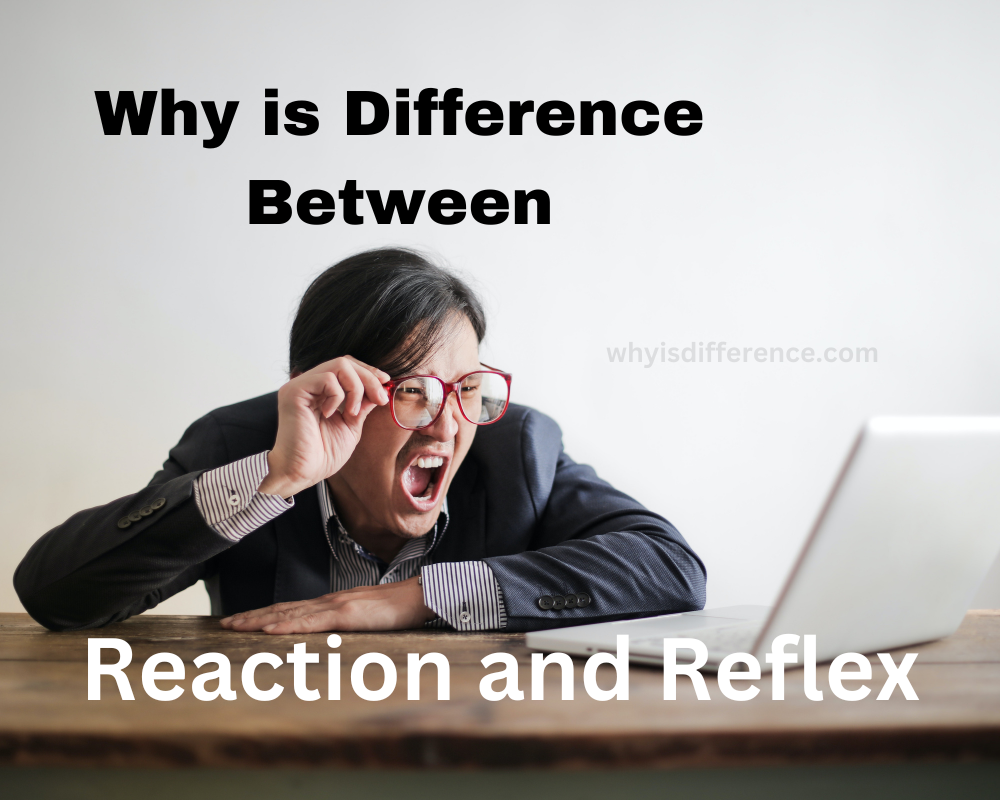Reaction and Reflex: Both reactions and reflexes occur in our bodies. These reflexes are what trigger quick, automatic reactions to stimuli. Although reactions and reflexes may seem the same, there are some differences between them in their function and the way they happen. This article will give a detailed explanation of how reactions differ from reflexes.
What Is a Reaction?

A stimulus in the context of physiology is a detectable change that occurs either within or outside the body. A response or reaction is an organism’s ability to recognize the stimulus and respond accordingly. For a response to happen, the stimulus must travel along the CNS via sensory organs, sensor neurons, brain, and effector neurons.
The response to an external stimulus is voluntary and requires conscious thinking. A reaction, as opposed to a response, is much slower because the information from the stimulus must travel to the brain before it can be sent to the organs that will carry out the action. During a reaction, sensory nerves transmit information from sensory organs up to the brain, which organizes the signal, and then transfers it to motor neurons to send the information to the effector organs. The motor neuron then gives the information to the effector organ.
What is Reflex?

Reflexes are instantaneous movements that occur involuntarily as a response to stimuli. The reflex arcs, the neural pathways in all living organisms, facilitate this process. These reflex arcs can act instantly on an impulse without having to send stimulus information to your brain. It is an automatic reaction that doesn’t require conscious thought to respond. Reflexes are responsible for the instantaneous withdrawal of the feet when stepping on an object. Reflexes are faster and more immediate than reactions, which reduces physical injury.
How are Reaction and reflex similar?
- In response to an external stimulus, both reaction and reflex are involved.
- Both types must have a sensory neuron and motor neurons.
- Both involve the nervous systems.
- Both are important in maintaining the homeostasis of the human body.
Why is the difference between Reaction and Responsiveness?

The reaction is relatively a slower action, which goes through the brain. The reflex, on the other hand, is an action that occurs quickly and does not require the involvement of the brain. This is the main difference between a reaction and a reflex. Reflexes are instantaneous actions that minimize the damage.
The reaction is also a voluntary action, while the reflex is involuntary. This is another way to differentiate between reflex and reaction. This infographic explains the differences between reflex and reaction.
Difference between reaction and reflex in a Table:
| Inspact | Reaction | Reflex |
|---|---|---|
| Definition | A voluntary response to a stimulus | An involuntary response to a stimulus |
| Control | Conscious control | Involuntary control |
| Processing | Involves higher brain centers | Primarily involves the spinal cord |
| Speed | Slower reaction time | Rapid response time |
| Learning | Can be learned and modified through experience | Innate and not subject to learning or training |
| Complexity | Can involve complex motor or cognitive actions | Typically involves a simple motor response |
| Adaptability | Can be adjusted based on the situation | The fixed and stereotypical response |
| Examples | Voluntarily raising your hand to answer a question | Blinking when a bright light is suddenly encountered |
Reflexes and reactions are often confused, but important differences exist. Reactions are voluntary responses whereas reflexes are involuntary or unintentional (and not subject to conscious control in most cases). Each type of response is initiated by a sensory stimulus that may be visual, audible, tactile, olfactory, or gustatory in nature1.
Here are some differences between reflexes and reactions:
Reflex:
- Involuntary.
- Unintentional.
- Not subject to conscious control.
- Simple and automatic.
- Shorter time to respond.
Reaction:
- Voluntary.
- Intentional.
- Subject to conscious control.
- Complex and learned.
- Longer time to respond.
Although reactions and reflexes may seem the same at first, they differ in several ways, such as:
1. Rapid Response
The speed at which a person reacts or reflexes can be a significant difference. Reflexes happen very fast, in a matter of milliseconds. The reaction, however, takes longer because it involves conscious decision-making and thought processes.
2. The Brain is Involved
The spinal cord controls reflexes and does not include the brain. The brain controls reactions, which involve conscious thinking processes.
3. Voluntaryism
We cannot control reflexes because they are automatic and involuntary. In contrast, reactions are conscious and voluntary, so we have some control over them.
4. Complexity
Because they require conscious decision-making and thought, reactions are much more complex. Reactions are simpler and more automatic.
5. Adaptive ability
We can adapt our reactions based on what we learn. The opposite is true for reflexes. They are inborn and cannot be changed.
Example Reactions and Responses
Example of Reactions:
- Determining to keep your hands away from the hot stove
- Crossing the road when the light is green
- How to stop your vehicle at a traffic light
Example of Reflexes:
- When something injures your nose, you may sneeze
- When an object is close, blink your eyes
- When you feel something hot, it is best to remove your hand.
Summary – Reaction and Reflex
Both reflex and reaction are ways to respond to an external or internal stimulus. The reflex is an instantaneous, involuntary process. The reaction is much slower than the reflex. In response, the information received from the stimuli reaches the cerebral cortex, while in a reflex it doesn’t. This is why the difference between a reaction and a reflex is so important. Both processes play a role in maintaining body homeostasis.

